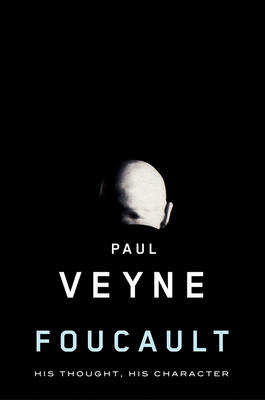
Foucault
His Thought, His Character
Seiten
2010
Polity Press (Verlag)
978-0-7456-4641-1 (ISBN)
Polity Press (Verlag)
978-0-7456-4641-1 (ISBN)
- Titel z.Zt. nicht lieferbar
- Versandkostenfrei
- Auch auf Rechnung
- Artikel merken
Michel Foucault and Paul Veyne: the philosopher and the historian. Two major figures in the world of ideas, resisting all attempts atcategorization. Two timeless thinkers who have long walked andfought together. In this short book Paul Veyne offers a freshportrait of his friend and relaunches the debate about his ideasand legacy.
Michel Foucault and Paul Veyne: the philosopher and the historian. Two major figures in the world of ideas, resisting all attempts at categorization. Two timeless thinkers who have long walked and fought together. In this short book Paul Veyne offers a fresh portrait of his friend and relaunches the debate about his ideas and legacy. ‘Foucault is not who you think he is’, writes Veyne; he stood neither on the left nor on the right and was frequently disowned by both. He was not so much a structuralist as a sceptic, an empiricist disciple of Montaigne, who never ceased in his work to reflect on 'truth games', on singular, constructed truths that belonged to their own time.
A unique testimony by a scholar who knew Foucault well, this book succeeds brilliantly in grasping the core of his thought and in stripping away the confusions and misunderstandings that have so often characterized the interpretation of Foucault and his work.
Michel Foucault and Paul Veyne: the philosopher and the historian. Two major figures in the world of ideas, resisting all attempts at categorization. Two timeless thinkers who have long walked and fought together. In this short book Paul Veyne offers a fresh portrait of his friend and relaunches the debate about his ideas and legacy. ‘Foucault is not who you think he is’, writes Veyne; he stood neither on the left nor on the right and was frequently disowned by both. He was not so much a structuralist as a sceptic, an empiricist disciple of Montaigne, who never ceased in his work to reflect on 'truth games', on singular, constructed truths that belonged to their own time.
A unique testimony by a scholar who knew Foucault well, this book succeeds brilliantly in grasping the core of his thought and in stripping away the confusions and misunderstandings that have so often characterized the interpretation of Foucault and his work.
Paul Veyne is Honorary Professor at the Collège de France.
Introduction 1
1 In Universal History, Everything is Singular: ‘Discourse’ 5
2 There is No ‘a priori’ that is Not Historical 22
3 Foucault’s Scepticism 37
4 Archaeology 54
5 Universalism, Universals, Epigenesis: The Beginnings of Christianity 59
6 Notwithstanding Heidegger, Man is an Intelligent Animal 66
7 The Physical and Human Sciences: Foucault’s Programme 77
8 A Sociological History of Truths: Knowledge, Power, the Set-up 92
9 Was Foucault a Corrupter of the Young? Was He the Despair of the Workers’ Movement? 111
10 Foucault and Politics 125
11 Portrait of a Samurai 135
Notes 147
Index 187
| Erscheint lt. Verlag | 30.7.2010 |
|---|---|
| Verlagsort | Oxford |
| Sprache | englisch |
| Maße | 144 x 221 mm |
| Gewicht | 408 g |
| Themenwelt | Geisteswissenschaften ► Philosophie ► Philosophie der Neuzeit |
| Geisteswissenschaften ► Psychologie ► Allgemeine Psychologie | |
| ISBN-10 | 0-7456-4641-7 / 0745646417 |
| ISBN-13 | 978-0-7456-4641-1 / 9780745646411 |
| Zustand | Neuware |
| Haben Sie eine Frage zum Produkt? |
Mehr entdecken
aus dem Bereich
aus dem Bereich


